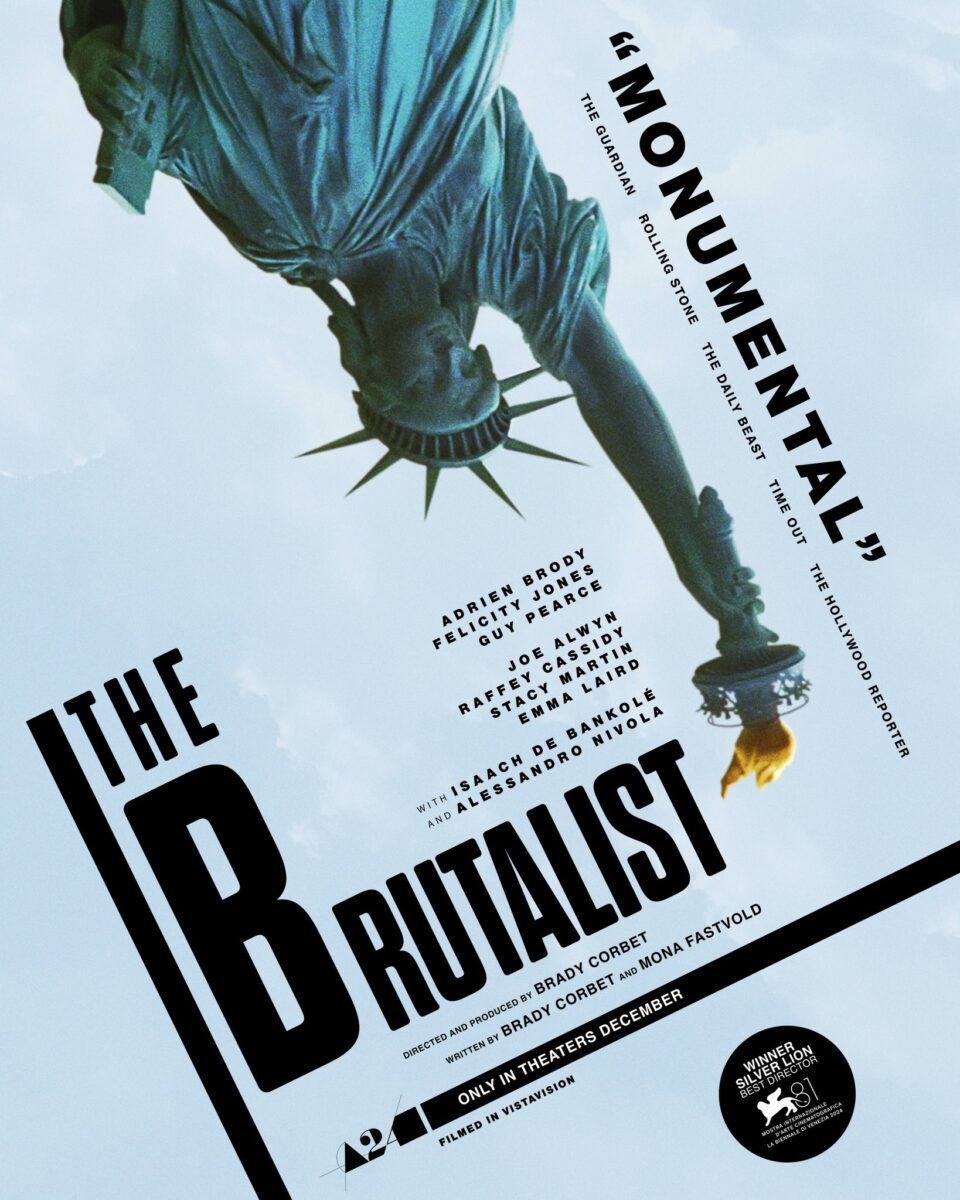As one can tell from our feature wrapping up the best premieres on the fall circuit, no film has earned more discussion these last few months than Brady Corbet’s The Brutalist. Led by Adrien Brody, Guy Pearce, Felicity Jones, Joe Alwyn, Raffey Cassidy, Stacy Martin, Isaach De Bankolé, and Alessandro Nivola, the drama of epic proportions is 215 minutes long, with a 15-minute intermission, shot on VistaVision, and presented on 70mm. Venice’s Best Director winner was picked up by A24 for a U.S. release that begins on December 20, and they’ve now released the first trailer, highlighting Daniel Blumberg’s fantastic score and teasing the film’s unique approach to the credit roll.
Here’s the synopsis: “Escaping post-war Europe, visionary architect László Toth arrives in America to rebuild his life, his work, and his marriage to his wife Erzsébet after being forced apart during wartime by shifting borders and regimes. On his own in a strange new country, László settles in Pennsylvania, where the wealthy and prominent industrialist Harrison Lee Van Buren recognizes his talent for building. But power and legacy come at a heavy cost…”
As Rory O’Connor said in his review, “In Corbet’s miraculous introduction, a musical overture is disrupted by a dizzying climb: first Brody’s face, enveloped in shadows in the belly of a ship, then a race to the deck with Lol Crawley’s 70mm camera barely keeping pace. For a few dark moments it’s difficult to make out what’s going on––then, all of sudden, the score surges, the men reach clear sky, embracing as the Statue of Liberty breaks into the frame from above them, the New World turned upside-down. Mere moments in, we are already given a taste of what Corbet’s film will ultimately say about the American dream. For the opening act, Tóth moves in with his assimilated cousin (Alessandro Nivola), who already sports a new name and religion, and begins work in his furniture shop but soon gets the feeling that his modernist sensibilities may not be welcome. The relationship with Van Buren (who he meets after being given a chance commission to refurbish his library, producing a light-filled space that makes the pages of Life magazine) offers hope of artistic freedom and upward mobility; but soon ego, envy, and xenophobia rear their ugly heads. Corbet allows this mood to slowly fester away, building to a metaphor that is about as vulgar as it is cruelly effective. It is probably best to leave it there.”
See the trailer below, along with the poster and NYFF62 Q&A.

